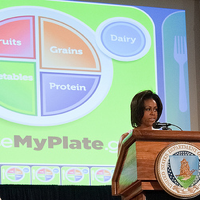The real clash of civilizations in the 21st century will be not over religion, but over food. As the emerging East and surging South achieve appreciable amounts of disposable income, they're increasingly taking on a Western-style diet. This bodes poorly for the world on multiple levels, with the most-alarmist Cassandras warning about imminent resource wars. But the more immediate and realistic concern is the resulting health costs, which will inevitably trigger a rule-set clash between nanny-state types hell-bent on "reining in" a number of globalized industries -- agriculture, food and beverages, restaurants, health care and pharmaceuticals -- and those preferring a more free-market/libertarian stance.
This clash won't necessarily pit East versus West or North versus South, or even democracies versus authoritarian regimes. The core of this struggle will be about sustainability versus individual freedom of choice, because, as a recent Financial Times editorial put it, "Individuals have a right to indulge in excesses, but they also have responsibility for costs."
Of course, we're already used to hearing that kind of talk with regard to the usual suspects, like tobacco use and drug abuse. But what about when soft drinks, salty potato chips, sugary confections and fatty cheeseburgers all go onto the "sin tax" list? Sound incredible? Several U.S. states recently considered doing just that to triangulate rising health care and eldercare costs with looming fiscal constraints. Meanwhile, for the first time in its history, the United Nations just debated the social burden of noncommunicable diseases, otherwise known as lifestyle choices.

